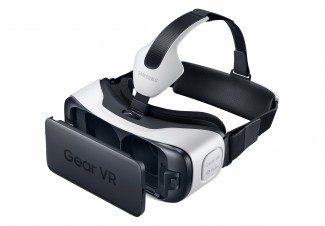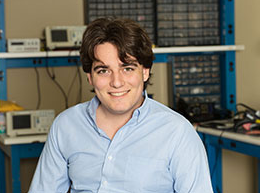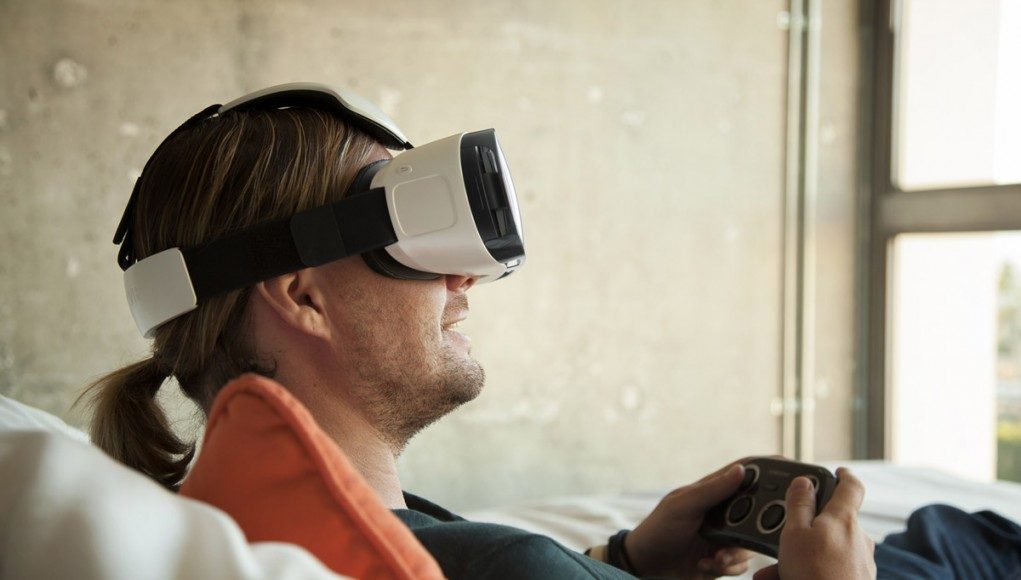With Oculus’ annual Connect developer conference now less than 24 hours away, the VR community at large is saturated with excited speculation about what might be revealed. One thing we won’t be seeing at the event, says Oculus founder Palmer Luckey, is positional tracking on Samsung’s Gear VR headset.
Samsung Gear VR, the premier mobile VR headset, was created in conjunction with Oculus. Officially Gear VR is ‘Powered by Oculus’, though Samsung seems to maintain much of the ownership of the project as the unit has been marketed and sold through the mobile phone maker.
 While Gear VR provides a surprisingly compelling mobile VR experience, one of its notable missing features is positional tracking: the ability to track movement of the user’s head through 3D space. Positional tracking works with rotational tracking (which direction the head is turning) to move the virtual view such that it truly feels like you are inside the virtual space. Without positional tracking, you might try to lean forward in your chair but the world would not move correctly around you as it should.
While Gear VR provides a surprisingly compelling mobile VR experience, one of its notable missing features is positional tracking: the ability to track movement of the user’s head through 3D space. Positional tracking works with rotational tracking (which direction the head is turning) to move the virtual view such that it truly feels like you are inside the virtual space. Without positional tracking, you might try to lean forward in your chair but the world would not move correctly around you as it should.
The Oculus Rift DK2 was the first Rift development kit to introduce positional tracking, and it achieves this with the use of an IR-LED camera which looks at the headset to determine its movement. A camera, which sits away from the headset to observe its movements, would be considered a form of ‘outside-in’ positional tracking.
A mobile VR experience, however, creates a new challenge for positional tracking: if the user could have the headset anywhere, a camera sitting away from the device couldn’t be used for positional tracking (without asking the user to carry one around wherever they go). A theoretically viable option then is what’s known as ‘inside-out’ positional tracking, which would make use of a camera mounted on the device itself to sense the positional movement of the user’s head.
It was suggested that inside-out positional tracking might be the next logical step for Gear VR, and rumors about a possible announcement of the feature have been swirling ahead of Oculus Connect. Those rumors can now rest in peace, as Oculus Founder Palmer Luckey has affirmed that there won’t be any such announcement at Connect.
See Also: Gear VR Review: Part One – Design Comparison to Oculus Rift DK2

Responding on the Oculus section of Reddit to a comment about the possibility of such an announcement Luckey writes, “In the spirit of killing overhype: Not going to happen. Our computer vision teams are doing some amazing work, but VR-grade inside-out tracking is not currently workable on mobile devices.”
Inside-out positional tracking has proven to be an especially difficult challenge, as it fundamentally relies on computer vision processing to assess the movement of the head through 3D space. Ideally, a camera on the headset would be able to recognize features in the environment around it, and use cues of environmental movement to determine the position of the head. Unfortunately, computer vision’s application in these sorts of scenarios is still very much a work in progress, and, according to Oculus, not yet capable of the fidelity of tracking necessary for a high quality VR experience. Maybe next year, folks.







